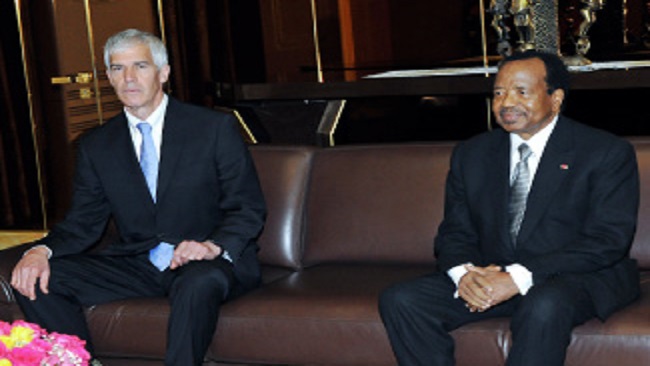US dilemma: Allow Russian preponderance or partner with genocidal dictators like Biya?
Allow Russia to do as they please in Africa or partner with African leaders with a history of war crimes and a tendency toward genocidal behavior? That is the conundrum American military and diplomatic leaders face. Cameroon, specifically, is one of the better examples of the struggle between geopolitics and human rights concerns.
Recently, General Thomas Waldhauser, the head of the U.S. Africa Command (AFRICOM), gave a briefing to the Senate Armed Services Committee focused on the military’s concerns in the African nation. With regard to the U.S. military’s relationship with Cameroon and the political leadership of the country, General Waldhauser said, “We were very emphatic with President Biya that the behavior of his troops, the lack of transparency, could have a significant impact on our ability to work with them.” He added that “they have been a good partner with us, counterterrorism-wise.”
Nonetheless, General Waldhauser made clear that AFRICOM is concerned about numerous reports of war crimes and atrocities committed in the African nation. Both General Waldhauser and Ambassador Peter Henry Barlerin have confronted Cameroonian President Paul Biya about these allegations. Compounding their concerns, the Trump administration has decided to cut military aid to Cameroon.
But developments in the African continent might mean that the U.S. doesn’t have many choices of partners and that it must make do with what is available. During the same briefing, General Waldhauser emphasized the threat stemming from Russia’s involvement in sub-Saharan Africa.
“By employing oligarch-funded, quasi-mercenary military advisors, particularly in countries where leaders seek unchallenged autocratic rule, Russian interests gain access to natural resources on favorable terms,” said General Waldhauser. “Some African leaders readily embrace this type of support and use it to consolidate their power and authority. This is occurring in the Central African Republic, where elected leaders mortgage mineral rights—for a fraction of their worth—to secure Russian weapons.”
Russia has been active in other African countries as well. Take for example Sudan. There, Russian private military companies (PMC) are helping the Sudanese dictator Omar al-Bashir to maintain power in the midst of popular upheaval.
Ambassador Barlerin said, “We are not going to stop security cooperation with Cameroon. We have our differences, Cameroon is a sovereign country and the United States is a sovereign country. Relations between Cameroon and the United States are excellent and longstanding and we aim to continue that relationship.”
American troops in Cameroon are mostly concerned with training their Cameroonian partners in basic soldiering and counterterrorism skills.
Thenewsrep.com





